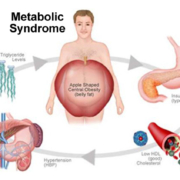Is It Worth It?
At an obesity conference, the report on the clinical trials for a pre-diabetes and diabetes medication left the crowd on their feet and cheering. There are reports of well-known personalities who’ve used the drug with great results. But the ultimate question about a pharmaceutical approach to obesity has to be this: is it worth the money? Let’s start by looking at the pharmaceutical and then the return on investment.
How It Works
The body makes proteins called incretins which can stimulate the release of insulin. One incretin hormone, GLP-1 (glucagon-like peptide-1), is manufactured in the upper digestive system in response to carbohydrate intake. In subjects with type 2 diabetes, this hormone effect is diminished or no longer present.
The ability to stimulate the production of insulin and prevent the release of glucose by glucagon can be stimulated pharmacologically by semaglutide, a receptor agonist—that means it turns on the glucagon. In subjects with type 2 diabetes, semaglutide stimulates GLP-1 receptors significantly, thereby reducing blood glucose and improving glycemic control. In addition, it has multiple effects on various organ systems; most relevant are a reduction in appetite and food intake, leading to weight loss in the long term. Since GLP-1 secretion from the gut seems to be impaired in obese subjects, it was logical to test it in obese populations. Those were the study results I reported on Tuesday.
All in all, this sounds like it might be a potential solution to our obesity crisis, but there are some unanswered questions. What is the long-term safety of regular use of the drug? How does the microbiome impact the effectiveness of the drug? But more than that, everything comes with a price, which begs the question: is it worth it?
The Price
The price of using semaglutide for obesity is really two-fold. First is the actual cost of the weekly injections which is about $1,400 per month at retail. If your insurance will cover it, I’ve seen prices as low as $25 per month. We know that people lost an average of 18% of their starting weight at 68 weeks—the length of the longest study to date—but the rate of weight loss declined near the end of the study. How long will insurance cover it beyond that, and will a person continue to lose weight? We don’t know.
After using the drug for 20 weeks, the placebo group was switched to a placebo and immediately began to gain weight. By the end of 68 weeks, they had regained all but 5% and were still gaining. Would an investment of close to $17,000 to lose about 20% of your weight be worth it if you began to gain it back? There are many questions around whether people can take this drug for the rest of their lives; every pharmaceutical intervention must have an end strategy. The researchers did not address the issue.
The Bottom Line
The research into this pharmaceutical intervention was well done. However, unless the intervention includes an exit strategy, it could be a waste of money. Perhaps a lower carbohydrate diet may be a partial solution because this drug impacts carbohydrate metabolism. But we don’t know whether the weight loss would be enough to have the body take over and do the same thing on GP-1 by itself.
I think this shows a hopeful approach and it may turn out to be a boost to someone who is absolutely willing to change their lifestyle or someone who needs to lose weight for a specific purpose, such as joint replacement surgery or preparing for IVF. But for most of us, maybe it’s better to save the time and money and do what we know works: Eat less. Eat better. Move more.
What are you prepared to do today?
Dr. Chet
References:
1. JAMA. 2021;325(14):1414-1425. doi:10.1001/jama.2021.3224
2. JAMA. 2022;327(2):138-150. doi:10.1001/jama.2021.23619









